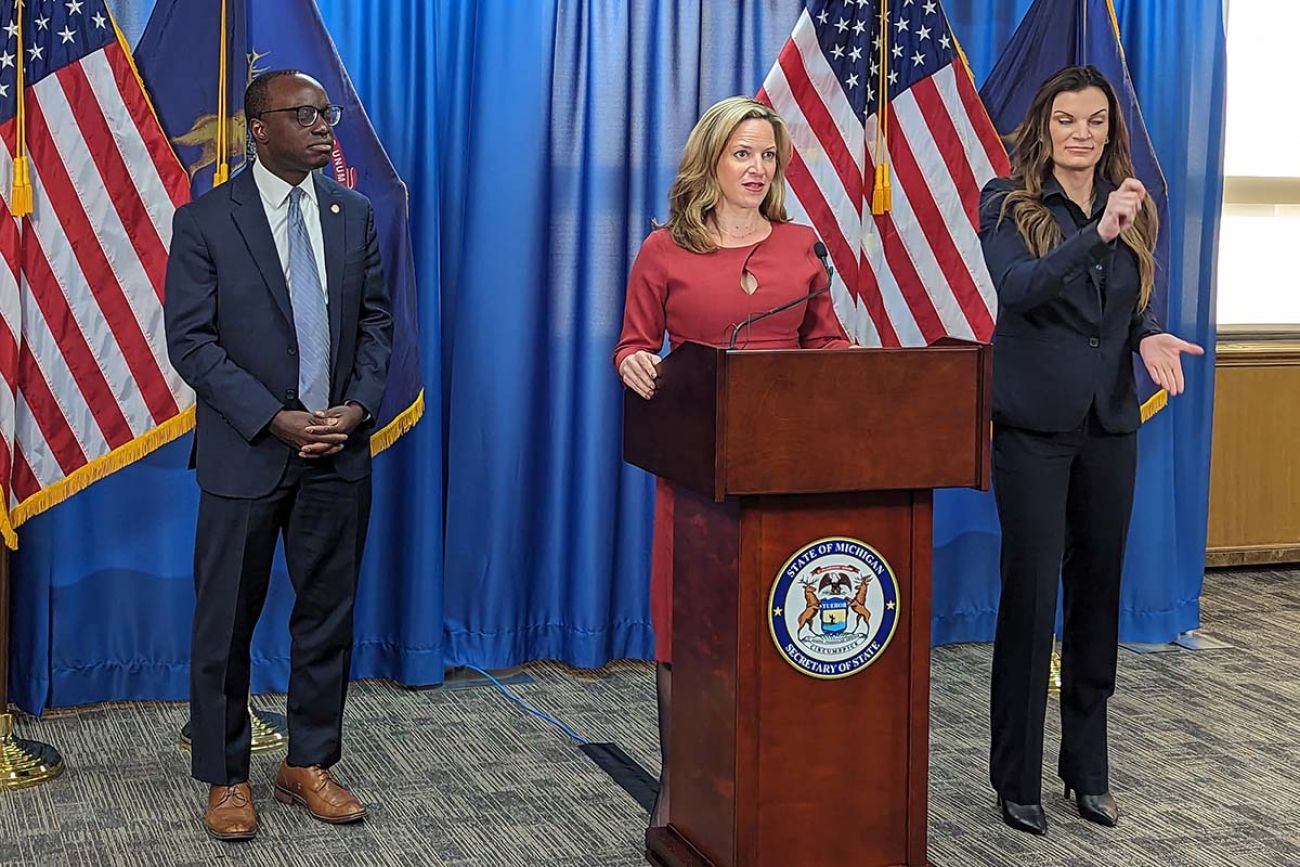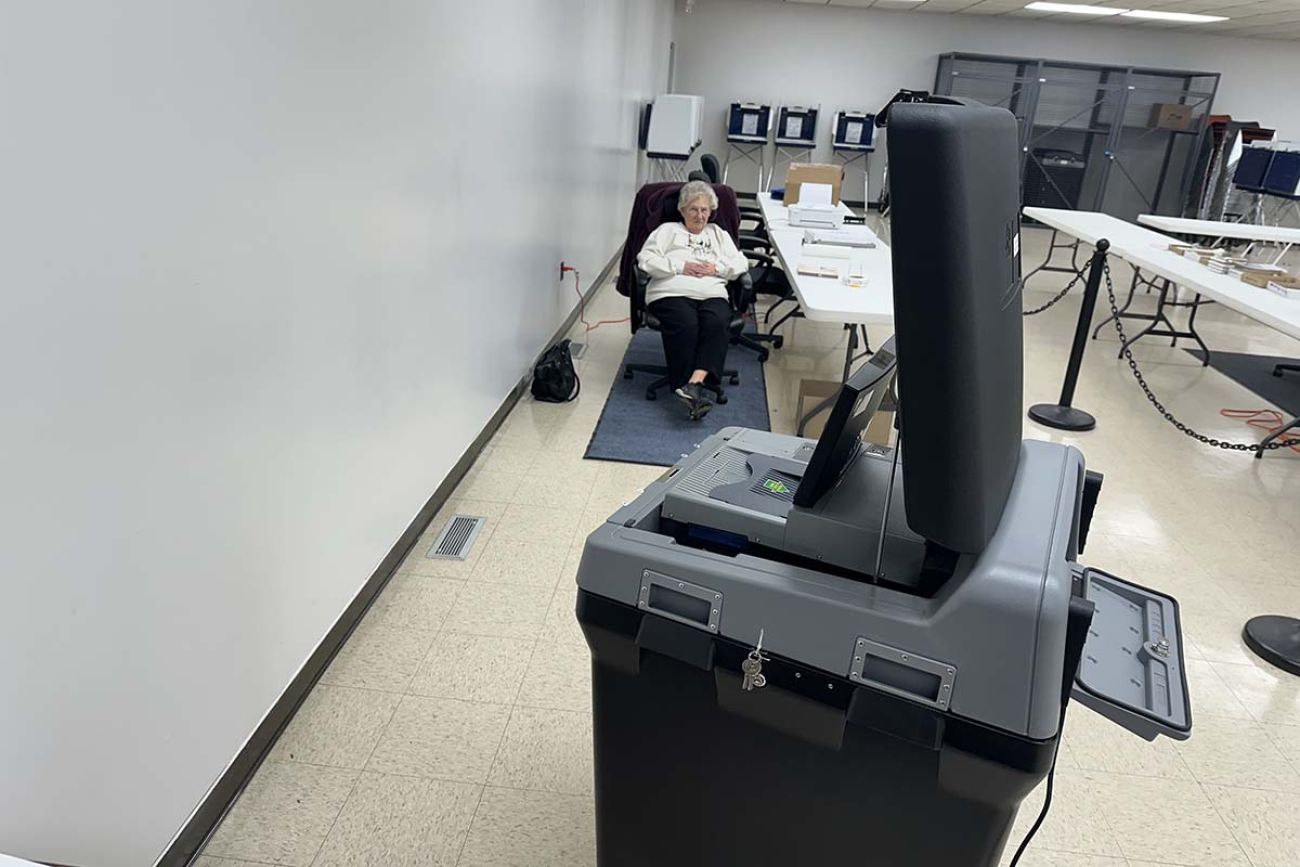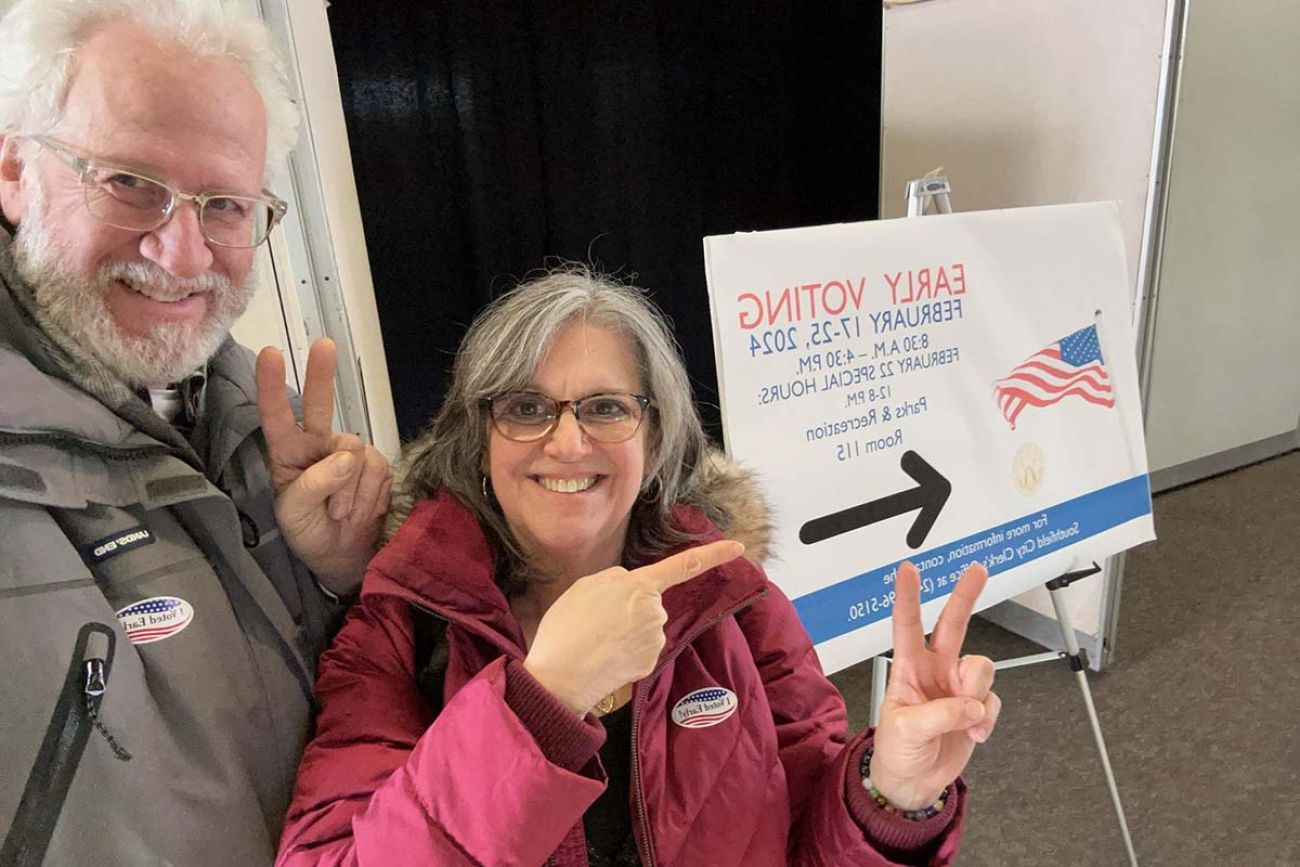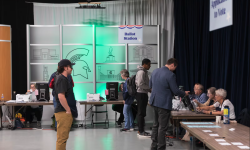Michigan 2024 primary: 934K absentee ballots cast, 78K in-person early votes

- More than 1 million voters have cast ballots already ahead of Tuesday presidential primary
- 78,000 voters cast ballots early in person using new system, 934,000 were cast absentee as of Monday afternoon
- Officials predict early voting could gain popularity in future elections
Michigan’s primary presidential election is Tuesday and more than 1 million voters have already cast ballots, including 78,000 who did so in person thanks to a new law, Secretary of State Jocelyn Benson said Monday.
The vast majority of early votes are still coming from absentee ballots, a popular option since voters approved no-reason absentee voting in 2018. As of Monday afternoon, 934,000 absentee ballots have been mailed in, according to the Secretary of State’s office, putting total pre-election turnout 13% higher than the 2020 presidential primary.
The primary is the first test of Michigan’s early voting process, a change approved by voters in 2022 that requires municipal clerks to provide at least nine eight-hour days of early voting ending the Sunday prior to every statewide election.
Despite initial cost concerns, Benson and other election officials said the process went smoothly overall and should get more popular with voters and easier for poll workers in future elections.
Related:
- Michigan primary 2024: What to know about Election Day
- Why Michigan GOP has a presidential primary and caucus convention this year
- In northern Michigan, voters admit qualms about Trump, still will vote for him
- Biden strains to reach young Michigan voters: ‘He’s too old’
“As with no-reason absentee voting, I expect in-person early voting to also become more and more popular and more citizens learn about their options and become accustomed to Michigan having several election days, rather than just one election day,” Benson said during a Monday morning media conference.
Slow and steady
Voters who opted into the new early voting system typically didn’t have to wait in line. Instead, many election workers had to wait for voters.
In Roscommon County’s Denton Township, poll worker Candi Mishler said 25 voters cast ballots in the first three days of early voting.

“The few people who have been here say they appreciate it, because they couldn't make it on Election Day and they prefer to vote in-person,” she said.
Municipalities had the option of running countywide early voting operations, partnering with nearby localities or running individual early voting systems.
Benzonia Township Clerk Diana Heller said she would have preferred a countywide option, but said the township and other nearby municipalities in northern Michigan’s Benzie County “were forced to each do our own” due to lack of space and availability at the county level.
That cost the township about $10,000, Heller said, and only one voter used the option on the first day. Lawmakers allocated $30 million statewide for setting up early voting systems, although Benson said Monday that a full cost breakdown for the first round of early voting isn’t yet available.
Regardless of turnout, Heller said the township will do “what we have to do” to comply with new early voting requirements.
“It’s our job — we’ll do it,” she said.
Dry run for November
Benson said Monday that early voting was most popular in cities, with Detroit reporting the most early voters overall and Ann Arbor reporting the highest percentage of registered voters in the city casting their ballots early.
Ann Arbor had six early voting locations, including the University of Michigan campus, City Hall and libraries, City Clerk Jacqueline Beaudry told Bridge Michigan.
Although “there was a lot of nervousness” from clerks, the modest turnout and similarities to Election Day setups helped the process go off without a hitch, Beaudry said.
East Lansing City Clerk Marie Wicks said she saw the presidential primary early vote as a “dry run” for the November general election, which typically has higher turnout.
Eventually, she hopes the number of options helps ease the pressure on clerks and ensures voters “can feel good about the results, whether or not they agree with them.”
Early voters who spoke with Bridge said the option opens the possibilities and makes getting a ballot in on time a little easier.

Wendy Shepherd, 71, has voted consistently since she turned 18. She said voting absentee “is not nearly as much fun” and jumped at the chance to vote in person on Feb. 18.
“It levels the playing field so that if somebody has transportation problems, childcare problems, mobility problems, whatever, they've got 10 days to get there,” she said. “It's a really great way to make sure everybody has a voice.”
Jonathan Oosting and Ron French contributed.
See what new members are saying about why they donated to Bridge Michigan:
- “In order for this information to be accurate and unbiased it must be underwritten by its readers, not by special interests.” - Larry S.
- “Not many other media sources report on the topics Bridge does.” - Susan B.
- “Your journalism is outstanding and rare these days.” - Mark S.
If you want to ensure the future of nonpartisan, nonprofit Michigan journalism, please become a member today. You, too, will be asked why you donated and maybe we'll feature your quote next time!




